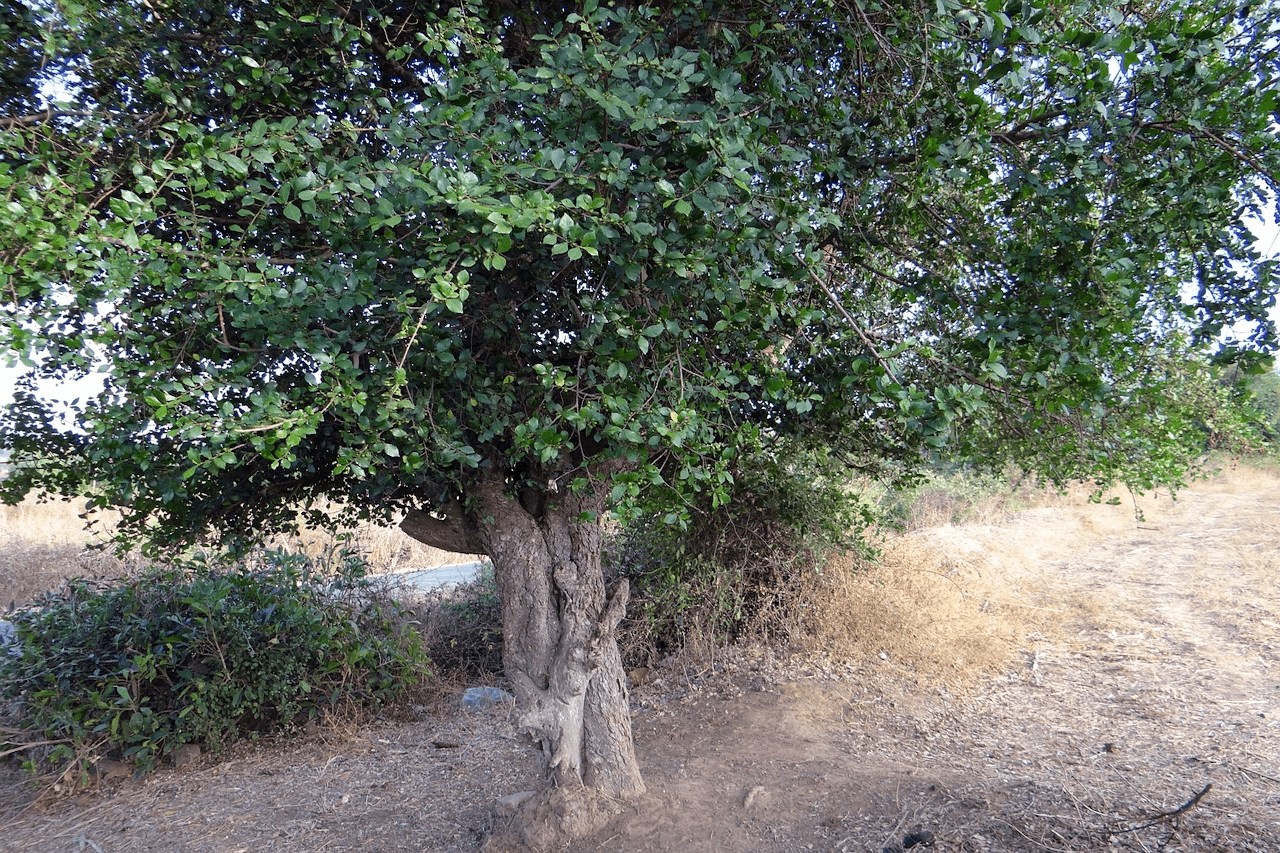Ezekiel 17:22-24; Psalm 92; 2 Corinthians 5:6-10 (RM) or 6-10, 14-17 (RCL). Mark 4: 26-34.
In Love Is the Way, U.S. Episcopalian Bishop Michael Curry writes,
Q. What is the best time to plant a tree?
A. Twenty years ago.
Q. What is the second-best time to plant a tree?
A. Right now.
Really, it’s not the smallest seed – there are smaller seeds, such as the poppy seed. But the mustard seed has entered Christian imagery to the point where you can find vials of mustard seed for sale in any Israeli souvenir shop catering to Christian pilgrims. I keep mine on a bookshelf next to what’s supposed to be myrrh.
Apparently in Israel mustard trees can grow as high as 10-12 feet. That may not make it the largest of trees, although it’s certainly an invasive plant. The idea here is rhetorical hyperbole – deliberate exaggeration — a way of teaching that stretches human imagination until the hearers can easily grasp the point. Each side of the dramatically exaggerated equation—tiny seed, gigantic tree– expresses a constellation of spiritual insights when taken together.
When the second story about the mustard seed is read in tandem with the first story of the sower in our Gospel today, we’re presented with a seed of life that grows and ripens all by itself, beyond the control of the sower. The seed rises from the ground, blooming and flourishing on a cosmic timetable, as it were: God’s timetable, not ours.
Here is a poem by Dorothee Sandherr-Klemp, Wunder des Wachstums (“The Miracle of Growth”):
The strength of growth, the miracle of ripening,
Pulls itself away from our grasp.
The earth lets the seed come to fruition from itself.Whoever hurries to the field, impatient, to turn it over with the shovel
In order to see what’s become of the grain of seed, has a problem.Whoever pulls up yet another chunk
of the fresh green that breaks through the topsoil,
trying to speed up its growth,
will surely never harvest anything.So what can we do? After what is in our power to do, then,
(but without encroaching), we trust, in the miracle of growth.*
And the birds build their nests in the great mustard tree. The birds find there a safe place to raise their young, a place of refuge in those tall trees.
When we last read this Gospel passage in church on Sunday, three years ago this month, Canadians were in shock and horror at the discovery of the remains of some 215 children buried on the grounds of the Kamloops Indian Residential School in British Columbia.
Where does a terrified child, robbed of family, language and culture, subject to humiliating and painful abuse – where can the child find shelter? How can a child deal with constant fear and deep shame, with nowhere to turn, no one to trust?
Where is the tall tree whose branches reach around to cuddle and shelter the child?
And how can we draw a line from the awe of witnessing the mystery of the seed germinating, growing and flourishing, with the uncounted peoples on our earth who suffer injustice, struggle to feed their children, live in fear, and migrate to countries where they are not wanted just to survive?
Perhaps start by finding just the right seeds and planting them, caring for them patiently with water and fertilizer, not pulling them up but nurturing them, until they ripen into a harvest of justice.
© Susan K. Roll
*Magnificat, das Stundenbuch, June 2018, © Butzon & Bercker, Kevelaer, Germany, p.174. My translation.
Susan Roll retired from the Faculty of Theology at Saint Paul University, Ottawa, in 2018, where she served as Director of the Sophia Research Centre. Her research and publications are centred in the fields of liturgy, sacraments, and feminist theology. She holds a Ph.D. from the Catholic University of Leuven (Louvain), Belgium, and has been involved with international academic societies in liturgy and theology, as well as university chaplaincy, Indigenous ministry and church reform projects.





Thank you for your insight about “rhetorical hyperbole” as a deliberate exaggeration… “a way of teaching that stretches human imagination until the hearers can easily grasp the point.”
Your highlighting how each side of the “dramatically exaggerated equation—tiny seed, gigantic tree– expresses a constellation of spiritual insights when taken together.”
I value everything that helps stretch our imaginations!